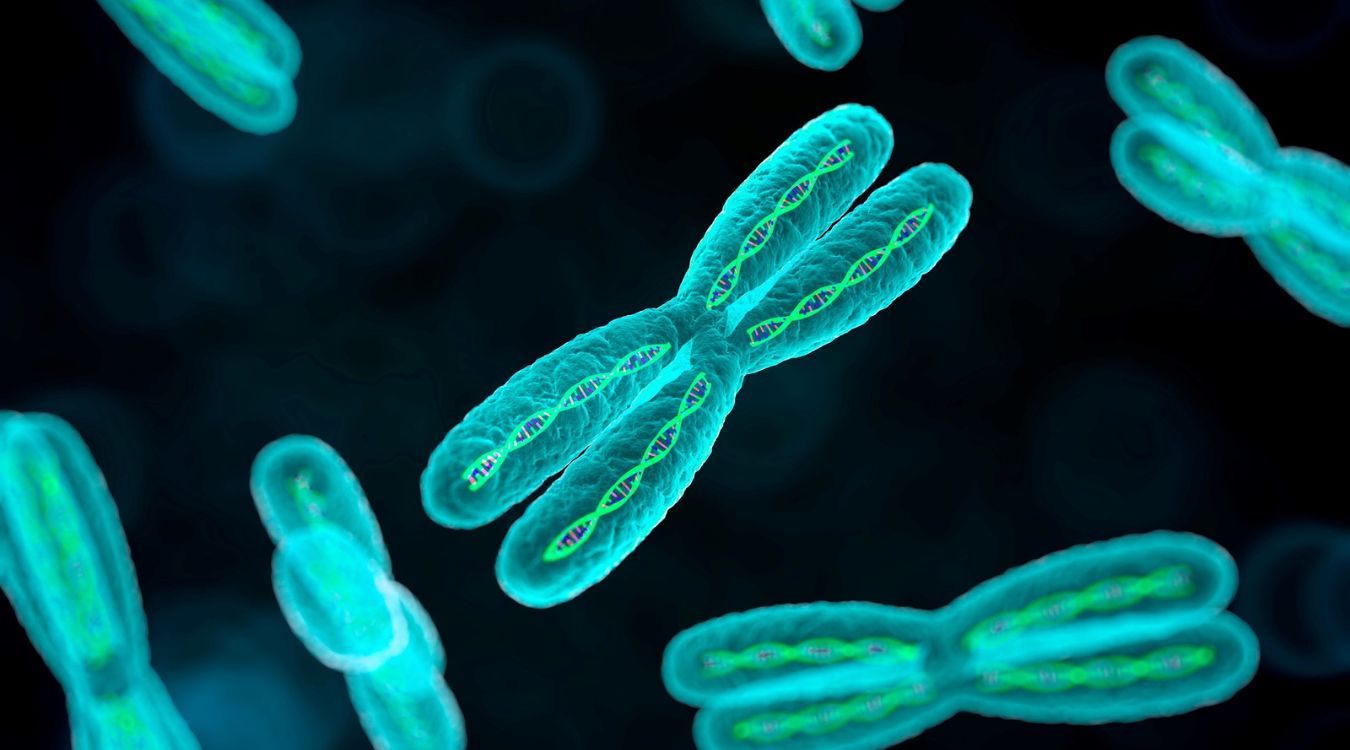
What are Y chromosome deletions? Y chromosome deletions are missing pieces of genetic material from the Y chromosome, which is one of the two sex chromosomes in humans. These deletions can affect male fertility, growth, and development. Why do they matter? They can lead to conditions like Turner syndrome, Klinefelter syndrome, and various forms of male infertility. Understanding these deletions helps in diagnosing and managing these conditions. How common are they? While not extremely common, they are significant enough to impact a noticeable portion of the male population. Can they be treated? Some effects can be managed with medical interventions, but there's no cure for the deletions themselves. Let's dive into 25 intriguing facts about Y chromosome deletions.
Key Takeaways:
- Y chromosome deletions can impact male fertility and health, but not all deletions cause problems. Genetic testing and counseling are crucial for understanding and managing these deletions.
- Research on Y chromosome deletions is ongoing, with promising developments in gene therapy and stem cell research. Collaboration and public awareness are essential for supporting affected individuals.
What Are Y Chromosome Deletions?
Y chromosome deletions are genetic changes where parts of the Y chromosome are missing. These deletions can impact male fertility, development, and health. Here are some intriguing facts about Y chromosome deletions.
-
Y chromosome deletions can lead to male infertility. Missing genetic material affects sperm production.
-
The Y chromosome is one of the smallest human chromosomes. It contains fewer genes compared to other chromosomes.
-
Deletions on the Y chromosome can be inherited. Fathers can pass these deletions to their sons.
-
Not all Y chromosome deletions cause health problems. Some deletions are harmless.
-
The AZF (Azoospermia Factor) region is crucial for sperm production. Deletions in this region often result in infertility.
How Are Y Chromosome Deletions Detected?
Detecting Y chromosome deletions involves genetic testing. These tests help identify missing segments and understand their impact.
-
Karyotyping is a common method for detecting large deletions. It involves examining the chromosome structure under a microscope.
-
PCR (Polymerase Chain Reaction) can detect smaller deletions. This technique amplifies specific DNA segments to identify missing parts.
-
Microarray analysis provides a detailed view of deletions. It can detect even tiny missing segments.
-
Genetic counseling is recommended for families with Y chromosome deletions. Counselors help understand the risks and implications.
-
Prenatal testing can detect Y chromosome deletions in unborn babies. This helps parents prepare for potential health issues.
Effects on Male Health and Development
Y chromosome deletions can have various effects on male health and development. These effects range from fertility issues to physical abnormalities.
-
Some deletions can cause Turner syndrome-like features. These include short stature and heart defects.
-
Deletions in the SRY gene can lead to Swyer syndrome. Individuals with this condition have female characteristics despite having a Y chromosome.
-
Y chromosome deletions can affect puberty. Delayed or incomplete puberty is a common issue.
-
Certain deletions are linked to increased risk of testicular cancer. Regular check-ups are important for early detection.
-
Hormone therapy can help manage some effects of Y chromosome deletions. Testosterone replacement therapy is often used.
Impact on Fertility
Fertility is one of the most affected areas by Y chromosome deletions. Understanding these impacts can help in managing reproductive health.
-
Men with Y chromosome deletions may have low sperm count. This condition is known as oligospermia.
-
Some deletions cause complete absence of sperm. This condition is called azoospermia.
-
Assisted reproductive technologies (ART) can help men with Y chromosome deletions father children. Techniques like IVF and ICSI are commonly used.
-
Genetic testing of embryos can prevent passing deletions to offspring. Preimplantation genetic diagnosis (PGD) is one such method.
-
Lifestyle changes can improve fertility in men with Y chromosome deletions. Healthy diet, exercise, and avoiding toxins are beneficial.
Research and Future Directions
Research on Y chromosome deletions is ongoing. Scientists are exploring new treatments and understanding the genetic mechanisms involved.
-
Gene therapy holds promise for treating Y chromosome deletions. This involves correcting or replacing the missing genetic material.
-
Stem cell research is another exciting area. Scientists are investigating how stem cells can be used to generate healthy sperm.
-
Advances in genetic editing tools like CRISPR offer potential solutions. These tools can precisely target and fix genetic deletions.
-
Collaborative research efforts are crucial. Scientists worldwide are working together to understand and treat Y chromosome deletions.
-
Public awareness and education are important. Understanding Y chromosome deletions can help reduce stigma and support affected individuals.
The Bigger Picture
Y chromosome deletions play a significant role in male health and reproduction. These genetic changes can lead to conditions like infertility and certain types of cancer. Understanding these deletions helps doctors diagnose and treat related health issues more effectively. Genetic testing has become a vital tool in identifying Y chromosome deletions, offering insights into potential health risks.
While these deletions can seem daunting, advancements in medical science provide hope. Treatments and interventions continue to improve, giving affected individuals better outcomes. Staying informed about genetic health is crucial for everyone, especially those with a family history of related conditions.
In essence, Y chromosome deletions remind us of the complexity of human genetics and the importance of ongoing research. By staying educated and proactive, we can better navigate the challenges posed by these genetic changes.
Frequently Asked Questions
Was this page helpful?
Our commitment to delivering trustworthy and engaging content is at the heart of what we do. Each fact on our site is contributed by real users like you, bringing a wealth of diverse insights and information. To ensure the highest standards of accuracy and reliability, our dedicated editors meticulously review each submission. This process guarantees that the facts we share are not only fascinating but also credible. Trust in our commitment to quality and authenticity as you explore and learn with us.
